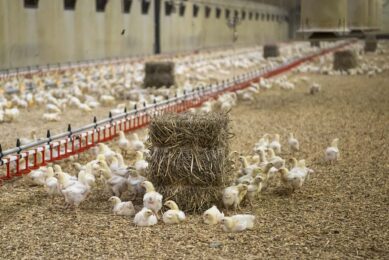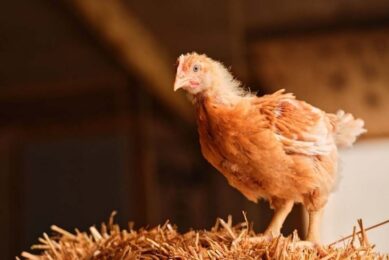Is activist pressure winning out over common sense
Living in a country where intensive livestock production is pictured as conducting a ‘crime against animals’ is interesting but not always a pleasant. Soon the Dutch parliament will discuss the possibility of stopping the bio-industry by closing all large scale efficiently managed livestock production units to be replaced by less efficient smaller organic or biologic operations
Living in a country where intensive livestock production is pictured as conducting a ‘crime against animals’ is interesting but not always a pleasant.
Soon the Dutch parliament will discuss the possibility of stopping the bio-industry by closing all large scale efficiently managed livestock production units and stimulating inefficient small scale organic or biologic operations by giving subsidies to cover the difference between the cost of production and the price consumers are prepared to pay. Over one hundred thousand people, 0.6% of the Dutch population, signed a petition to put the issue on parliament’s agenda.
A bio-industry ban?
Many people in the farming community shake their head in disbelief and do little to oppose the popular slogans from animal welfare and environment protection groups. They still believe that these minority activists won’t get the support to succeed, because their claims are not based on sound scientific evidence. Besides the activists are ignoring the fact that we live in a free world which supports the idea of free trade. Stopping the bio-industry in The Netherlands or even the EU would prompt producers outside these prohibition regions to produce more and export it at a price level that no extensive producer could meet or meat trader could refuse.
Many people in the farming community shake their head in disbelief and do little to oppose the popular slogans from animal welfare and environment protection groups. They still believe that these minority activists won’t get the support to succeed, because their claims are not based on sound scientific evidence. Besides the activists are ignoring the fact that we live in a free world which supports the idea of free trade. Stopping the bio-industry in The Netherlands or even the EU would prompt producers outside these prohibition regions to produce more and export it at a price level that no extensive producer could meet or meat trader could refuse.
Common sense
There is still hope, however, for common sense, but the question is whether politicians and the media follow the rules of common sense. They are more likely to follow the popularity polls than support or even thinking objectively about the bio-industry.
There is still hope, however, for common sense, but the question is whether politicians and the media follow the rules of common sense. They are more likely to follow the popularity polls than support or even thinking objectively about the bio-industry.
The heavily sponsored animal welfare and environment protection movements are able to hire well paid communication experts who know just how to manipulate politicians, the media and public opinion.
EU legislations to ban traditional layer cages and the recently accepted maximum number of birds per square metre for broilers are clear indicators of which direction the livestock industry is being forced.
Convincing consumers
Producers from outside the EU may think that this trend is to their advantage. And in some respect that is true, but one lesson to be learnt from this is that ignoring the issues or not responding timely to unfair allegations against intensive livestock production will lead to situations like we see now in the EU as well as in the USA, Australia and New Zealand.
Producers from outside the EU may think that this trend is to their advantage. And in some respect that is true, but one lesson to be learnt from this is that ignoring the issues or not responding timely to unfair allegations against intensive livestock production will lead to situations like we see now in the EU as well as in the USA, Australia and New Zealand.
The industry has to stand up and make sure, more so than in the past, that the consumers know how meat and eggs are produced and are convinced that we take care of our birds.
If consumers really don’t like it we have to come up with alternatives they are prepared to pay for. Or maybe the time will come that we will have to close the doors and accept that our business has changed and had its time.
Join 31,000+ subscribers
Subscribe to our newsletter to stay updated about all the need-to-know content in the poultry sector, three times a week. Beheer
Beheer








 WP Admin
WP Admin  Bewerk bericht
Bewerk bericht